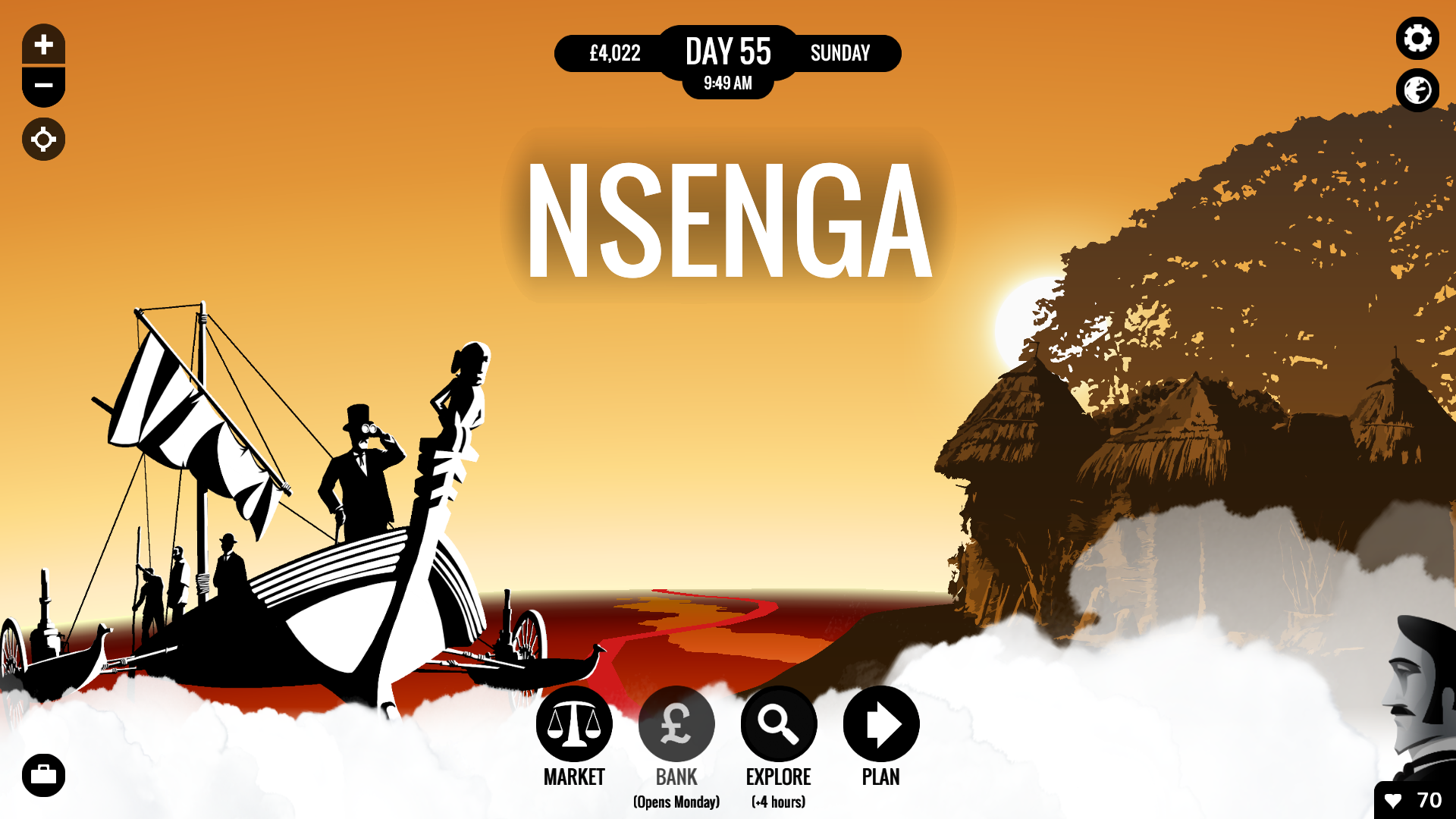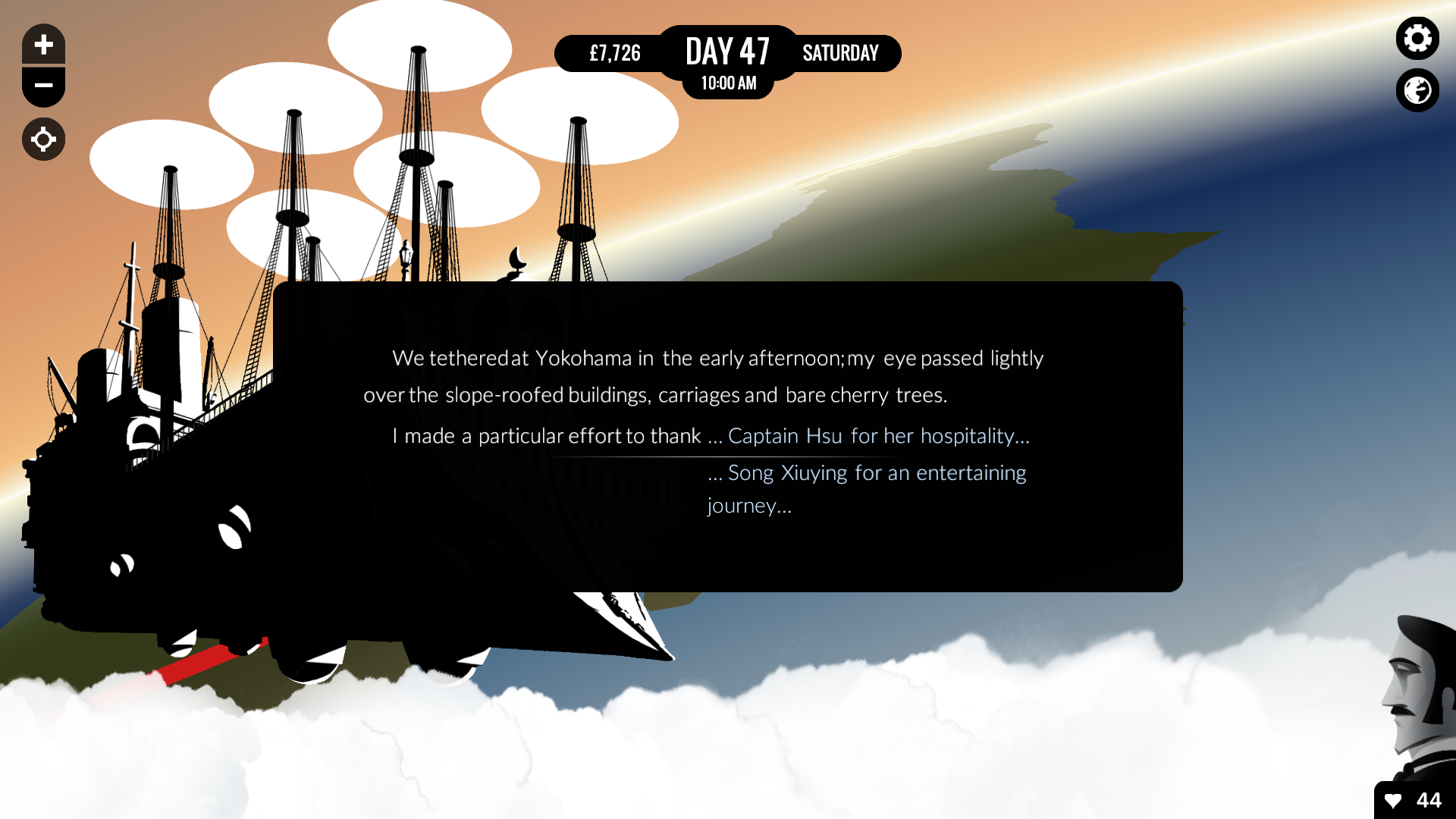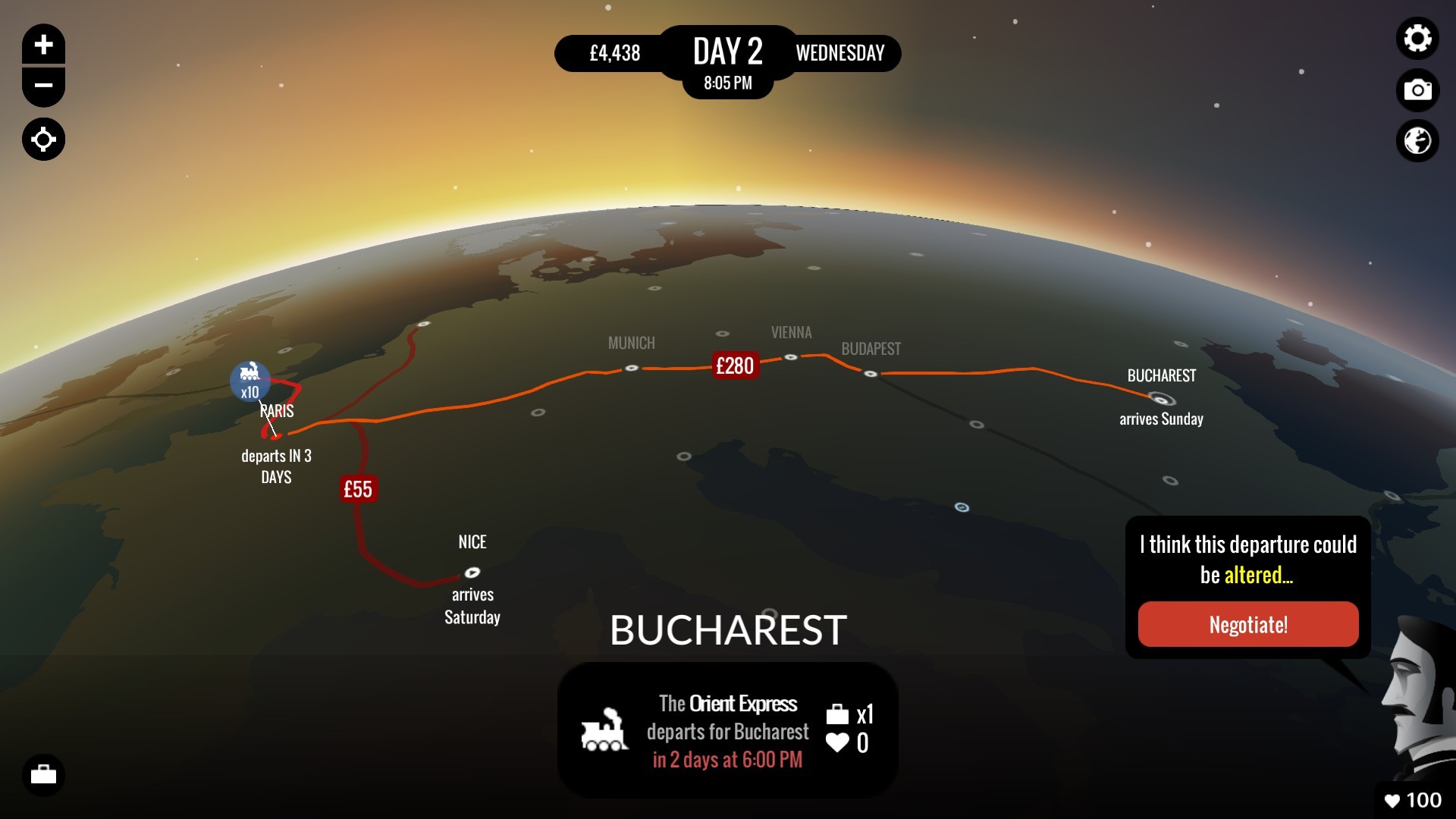The visual novel has long languished in the world of Otacon’s Japanese animes. The best the genre has to offer, the worst, and the most mediocre are dominated by one archetype – anime. For over a decade, the name of the genre conjures the same image in everyone’s head: schoolgirls, harems, big eyes, and Japan. Oh, and don’t forget the copious amounts of sex with women of questionable ages. While none of that is necessarily a problem (save for the implications of sex with a high school student), it doesn’t leave much room for originality.
Of course, strip away the Japanese-stylings of visual novels, and you still have a fairly rigid definition. Text is displayed at the bottom of the screen, there’s a static background featuring the story’s current location, and full-sized portraits of any important characters in the scene. The player sits back and reads, only occasionally making choices that may or may not affect the plot, if there’s even that luxury.
These have long been the building blocks for the vast majority of visual novels. But in 2014, for a brief moment with the release of one game, that changed. 80 Days, developed by Inkle and based on the Jules Verne novel was a revolutionary visual novel is just about every way.
A British Gentleman and a French Servant Walk Into a Bathysphere
For me, 80 Days is one of those games that changes everything. I was in a crappy place a month or so ago, and I stumbled across this game during the Steam Summer Sale. It looked good and it was cheap, so I took a flyer on it. I first played it two weeks later of course, intending to only play for a few minutes. Two and a half hours later, I finished my first playthrough and was contemplating a second run.
This game grabbed me so quickly I went out and bought a pregnancy test after I finished playing. It’s opening sequence is a masterclass in how to start a video game. It starts with a black screen and ambiguous text, telling you only that you’re in London, and the year is 1872. Immediately you’re introduced to Inkle’s unique take of the genre, by smoothly selecting text options that are written into the narrative, rather than the game breaking to offer you dialog options in bright, flashing boxes. Once you make your selection, of which you have only one option at first, the game fades into a gorgeously crafted Earth spinning in space, the music reaching its crescendo as the title come up, and the cutscene transitions seamlessly into gameplay.
80 Days is based on the Jules Verne novel, Around the World in Eighty Days, though maybe that’s a bit of a misnomer. While Inkle takes inspiration from the title and concept, little else is carried over. While Verne is known as a writer of science fiction, Around the World in Eighty Days is a standard adventure novel. Inkle injected science fiction into their adaptation, and in doing so, made something magical. Rather than traveling around the world in 80 days, it now feels like you’re traveling an alien world, learning and exploring all the new sights and sounds as much as you are in a race.
The narrative is also much more straight forward. Whereas the Verne novel largely centered around an English detective chasing our protagonists, 80 Days is strictly about circumnavigating the globe as quickly as possible. You’re put in the shoes of Passepartout, a French valet serving the English gentlemen Phileas Fogg. Despite the role, you actually take charge of the expedition, deciding where to go and when, what to buy and sell, and what to bring with you on your journey. That is what separates this game from over visual novels.
What’s in a Name?
80 Days is so drastically different from any other visual novel that it’s fair to question if it is one. For starters, it doesn’t look like one. There’s not anime inspired art, no large-chested schoolgirls inexplicably following you around everywhere, and not a single head of blue hair in sight.
There’s also more in the way of gameplay. You don’t passively watch the story unfold, you’re an active participant. You decide the journey you’re going to take around the world. To do that, you need to buy items from one city, and sell them in another for maximum profit. You could route money from a bank (if the city you visit has a bank), but this takes days. So, will you buy an item in one city to sell it for thousands of pounds in another city that you didn’t originally plan on going to, or do you think you have enough money for now?
You also have to keep an eye on Fogg’s health. Quicker routes between cities always cost more health than the slower ones, but you can attend to Fogg and bring back some of his health during rides, or you can rest in cities overnight to recuperate.
That’s a lot more to juggle than most visual novels. But that is essentially what this is. The story is presented in text, with the background art serving as window dressing. That’s what’s so great about 80 Days – it reinvents the genre, using the standard formula of display text and graphics, and doing something completely different with it.
Grate Righting
None of it would mean anything if this game wasn’t well-written. Luckily, it’s one of the best written games I’ve ever played. The characters, with the exception of Fogg, who barely says a word, are all fleshed out. But since you’re traveling around the world so quickly, you only ever get a quick glimpse into people’s lives.
Each city you visit has its story that you can influence to various degrees. One city you visit may be on the brink of a revolution that you could kick off, the next city you go to could be a sleepy little village. It’s different everywhere you go, and you never feel like you’re running into the same story twice, even if you play the game multiple times thanks to the degree of player choice.
Today’s episode of From Indie With Love dives more into the great writing, including how it inspired me to quit my permanent position here at Cliqist and some of my other writing gigs to pursue YouTube, as well as making my own games. Like I said, 80 Days is the kind of game that changes everything.






